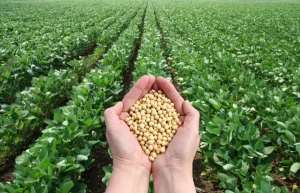How To Make Your Own Fertilizer For Jasmine Plant, I will guide you in this blog post, using simple and natural ingredients that you can find in your kitchen or garden.
Jasmine is a beautiful and fragrant plant that can brighten up any garden or home. But did you know that jasmine needs regular fertilizing to thrive and bloom. Fertilizing jasmine is not difficult, but it can be expensive if you buy commercial products.

Why Fertilize Jasmine Plant?
Jasmine is a plant that belongs to the olive family, and it has over 200 species. Some of the most common types of jasmine are Arabian jasmine, star jasmine, winter jasmine, and night blooming jasmine.
Jasmine plants can grow as vines & shrubs, and they can produce white, yellow & pink flowers that have a pleasant aroma.
Jasmine plants are not very demanding when it comes to soil and water, but they do need regular fertilizing to grow healthy flowers. Fertilizing jasmine plant can provide the following benefits:
| Sr No. | Benefits |
|---|---|
| 1- | It can boost the growth and development of the plant, especially during the spring and summer seasons when jasmine is actively growing. |
| 2- | It can enhance the color and quality of the flowers, making them more vibrant and fragrant. |
| 3- | It can prevent nutrient deficiencies and diseases that can affect the health and appearance of the plant. |
| 4- | It can increase the resistance and resilience of the plant to pests, drought, frost, and other environmental stresses. |

When And How To Fertilize Jasmine Plant?
The best time to fertilize jasmine plant is during the spring and summer seasons, when the plant is actively growing and blooming.
You can fertilize jasmine plant once a month, or every two weeks if you want to encourage more flowering. Avoid fertilizing jasmine plant during the fall and winter seasons, when the plant is dormant or resting.
The best way to fertilize jasmine plant is to use a liquid fertilizer that can be easily absorbed by the roots and leaves of the plant.
Either you can buy a readymade liquid fertilizer that is suitable for jasmine plant, or you can make your own using natural ingredients that you can find in your kitchen or garden. Here are some of the homemade fertilizers that you can use for jasmine plant:
Coffee Grounds
Coffee grounds are a great source of nitrogen, which is essential for the growth and development of jasmine plant. Coffee grounds can also lower the pH of the soil, making it more acidic and suitable for jasmine plant.
To use coffee grounds as a fertilizer for jasmine plant, you can do the following:
| Sr No. | Coffee Grounds As Fertilizer |
|---|---|
| 1- | Collect the used coffee grounds from your coffee maker or filter, and let them dry completely. |
| 2- | Sprinkle a thin layer of coffee grounds around the base of the jasmine plant, and gently mix them with the topsoil. |
| 3- | Alternatively, you can brew a weak coffee solution by adding one tablespoon of coffee grounds to one liter of water, and let it steep for a few hours. |
| 4- | Use the coffee solution to water the jasmine plant once a month, or every two weeks if you want to encourage more flowering. |

Banana Peels
Banana peels are rich in potassium, which is important for the flowering and fruiting of jasmine plant. Potassium can also help the plant to cope with drought, frost, and pests. To use banana peels as a fertilizer for jasmine plant, you can do the following:
| Sr No. | Banana Peels As Fertilizer |
|---|---|
| 1- | Cut the banana peels into small pieces, and bury them in the soil around the jasmine plant. |
| 2- | Alternatively, chop the banana peels and put them in a blender with some water, and blend them until smooth. |
| 3- | Use banana peel smoothie to water the jasmine plant once a month, or every two weeks to encourage more flowering. |
Eggshells
Eggshells are a good source of calcium, which is vital for the strength and structure of the plant cells. Calcium can also prevent blossom end rot, a common problem that affects the flowers of jasmine plant. To use eggshells as a fertilizer for jasmine plant, you can do the following:
| Sr No. | Eggshells As Fertilizer |
|---|---|
| 1- | Rinse the eggshells and let them dry completely. |
| 2- | Crush the eggshells into fine powder, and sprinkle it around the base of the jasmine plant. |
| 3- | Alternatively, you can boil the eggshells in water for 10 minutes, and let them cool down. |
| 4- | Use the eggshell water to water the jasmine plant once a month, or every two weeks if you want to encourage more flowering. |

See Also: How To Grow Plums At Home: Variety, Planting, Care Tips & Harvesting
Frequently Asked Question (FAQ’s)
The best fertilizer for jasmine plants is a balanced, slow-release formula with equal parts nitrogen, phosphorus, and potassium. Ensure well-draining soil and feed during the growing season for optimal results.
To promote faster jasmine growth, ensure optimal sunlight, well-draining soil, and a balanced fertilizer. Prune regularly for healthy, vigorous plants.
Yes, rice water is beneficial for jasmine plants. It provides essential nutrients, promoting healthy growth and vibrant blooms.
Your jasmine plant may not flower due to insufficient sunlight, pruning at the wrong time, or lack of nutrients. Ensure proper care for optimal blooming.
Jasmine typically flowers within 6 months to a year after planting, but this can vary based on the specific jasmine variety and growing conditions. Patience is key for beautiful blooms.
Yes, you can grow jasmine from a cutting. Ensure it’s a healthy, non-flowering stem, and follow proper propagation techniques for successful growth.
Jasmine’s captivating scent comes from its aromatic compounds, primarily benzyl acetate, benzyl alcohol, and linalool, creating a sweet and floral fragrance that delights the senses.
Conclusion
Fertilizing jasmine plant is not hard, but it can make a big difference in the health and beauty of your plant. By using homemade fertilizers, you can save money and avoid using harmful chemicals that can damage your plant and the environment.
Homemade fertilizers are also easy to make and use, and they can provide the essential nutrients that your jasmine plant needs to grow and bloom.
Try these homemade fertilizers for jasmine plant, and see the results for yourself. You will be amazed by how your jasmine plant will reward you with more growth and more flowers.

Meet Our Expert Agricultural Administrator
Welcome to agrigreenhands.com, your dedicated hub for all things related to agricultural farming. Leading the way in our commitment to sustainable and innovative practices is Jawad Hussain, our esteemed administrator with a profound background in agriculture….







